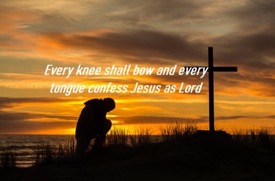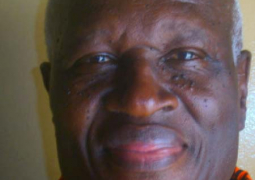
As God’s emissary to Pharaoh, the king of Egypt, Moses came up against a brick wall. Having the Israelites enslaved in Egypt released by Pharaoh became an uphill task because of the latter’s stubbornness. He would not budge even after God manifested his power in nine successive plagues. From a bloodied river that became undrinkable, to pests of frogs, gnats and flies, to the slaughtering of livestock (donkey, horses and camels, cattle sheep and goats) in the fields, to that of festering boils on men and animals, total darkness, to swarms of locust, to hail, God was continually hardening Pharaoh’s heart into refusing to let his people go – thus preparing the ground for the final onslaught.
Not until the death of every first-born of humans and animals littered Egypt did Pharaoh consent to letting the Israelites go. Moses’ initial request to Pharaoh had been: “The Lord, the God of the Hebrews, has sent me to say to you: ‘Let my people go so that they may worship me in the desert.’ (Exodus 7:16) A common adage in Woloff states that ‘an egg cannot fight with a stone.’ It would be to its loss.
After the plague of boils, God intensified the flames. “I will send the full force of my plagues against you and against your officials, and your people, so that you may know that there is no one like me in all the earth. For by now I could have stretched out my hand and struck you and your people with a plague that would have wiped you off the earth.” (Exodus 9:14-15)
Pharaoh’s officials pleaded with him. “How long will this man (Moses) be a snare to us? Let the people go, so that they may worship the Lord their God. Do you not yet realise that Egypt is ruined.” (Exodus 10: 7)
Even though at intervals he would ask Moses to pray for him to his God, he really saw himself as God and could not yield to another god no matter where he hailed from or what he could do. God dealt the final blow when all the first-borns of both humans and animals were killed overnight - and Pharaoh’s son Ramses was not spared. All hell broke loose. Pharaoh summoned Moses and told him; “Up! Leave my people, you and the Israelites! Go, worship the Lord as you have requested. Take your flocks and herds, as you have said, and go. And also bless me.” (Exodus 12:31-32) Furthermore, “the Egyptians urged the people to hurry and leave the country. ‘For otherwise, we will all die.” (verse 33)
By this time, Pharaoh had learnt his lesson the hard way - that stubbornness does not pay. But God was not finished with him yet. The last straw was when Pharaoh had a change of mind and pursued the Israelites. Terrified and panic-stricken, the Israelites cried out to the Lord in despair. In his response, he urged them to keep advancing. “The Egyptians you see today you will never see again. God will fight for you; you need only be still.” (Exodus 14: 13-14)
What king Pharaoh was unaware of was that it was God himself that sent the Israelites into slavery. Speaking to Abraham, he had revealed: “Know for certain that your descendants will be strangers in a country not their own, and they will be enslaved and mistreated four hundred years. But I will punish the nation they serve as slaves and afterward they will come out with great possessions.” (Genesis 15:13-14) The time was now up. “The Israelites groaned in their slavery and cried out, and their cry for help because of their slavery went up to God.” (Exodus 2: 23) “God heard their groaning and he remembered his covenant with Abraham, with Isaac and with Jacob.“ (Exodus 2:24)
Moses had been assigned a role and was merely a mouthpiece. Pharaoh was at loggerheads with God Jehovah who is nobody’s match. Deadly opposed to the idea of releasing God’s people because of economic considerations, Pharaoh precipitated Egypt into bankruptcy.
Is your intelligence, arrogance or status in the way of your obedience to God, the Almighty? God is sovereign and supreme. The fear of the Lord should teach us obedience. “For the Lord God has purposed, and who can thwart him? His hand is stretched out, and who can turn it back? (Isaiah 14:27) He who has ears let him hear.


